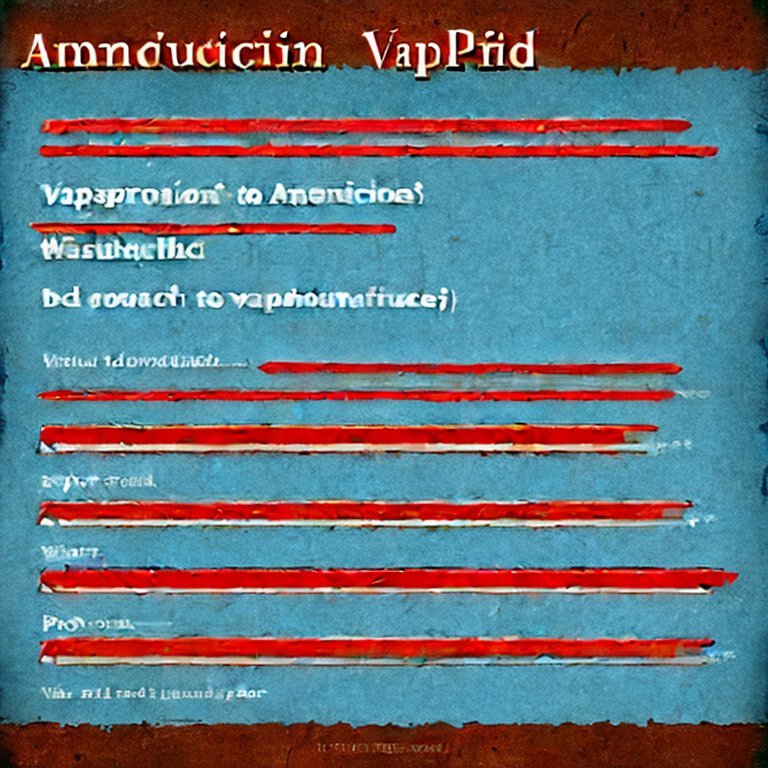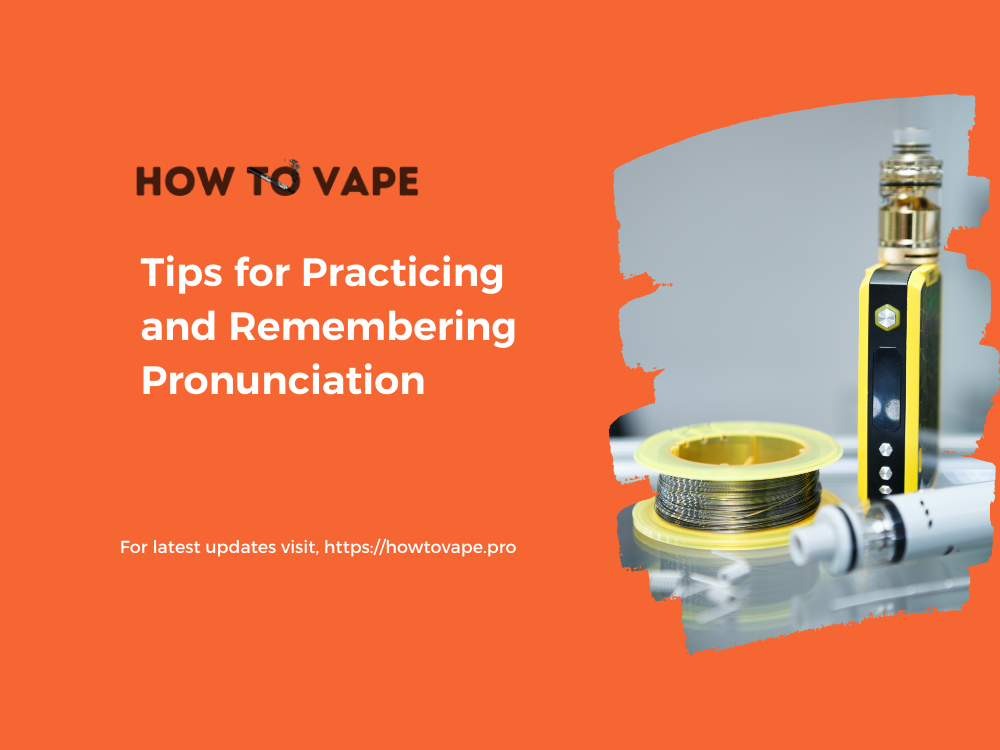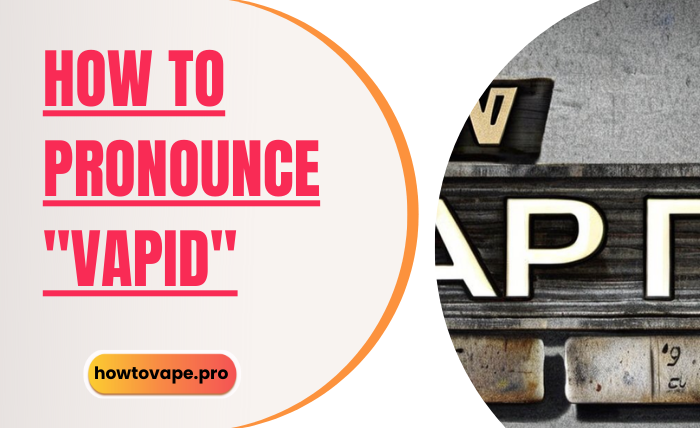As an educator with over 10 years of experience teaching English pronunciation and vocabulary, I often come across intriguing words that can amplify your language skills. One such example is “vapid.”
While it may not frequently appear in everyday conversations, learning the accurate pronunciation of “vapid” can enrich your lexicon. Read on for a comprehensive guide to articulating this word correctly and using it effectively to boost your verbal expression.
As a vape technician and a writer, I often come across words related to the vaping world. One such intriguing term is “vapid.” While it might not be a regular term in day-to-day conversations, incorporating it can surely spice up your dictionary.
What Does “Vapid” Mean?
Before diving into pronunciation, let’s review the definition of “vapid”:
According to Merriam-Webster dictionary, “vapid” is an adjective meaning:
- Lacking liveliness, animation, or interest
- Lacking taste, zest, or flavor
- Not lively or entertaining
- Pointless, dull, or wearisome
Essentially, “vapid” describes something that is uninteresting, monotonous, and bland. For example:
- He made vapid small talk at the party.
- The professor’s vapid lecture almost put me to sleep.
- I found the movie vapid and poorly written.
Now that we understand the meaning of this useful word, let’s examine how to pronounce it properly.
If you’re keen on expanding your vaping vocabulary, consider reading our step-by-step guide on how to use CannaAid Vape Pen or understanding how to take apart the Lost Mary Vape OS5000.

Pronunciation Guide
American Pronunciation
VA-pid
The first syllable sounds like “va” rhyming with words like “van,” “have,” and “cab.” Say it clearly and precisely, avoiding letting it become “vuh” or shortened.
The second syllable sounds like “pid” rhyming with “kid” and “did.” Be sure to pronounce the “d” crisply without letting it become muted.
When you put the two syllables together, pronounce “vapid” as VA-pid with nearly equal emphasis on both parts.
Here are some examples of “vapid” used in sentences with the correct American pronunciation:
- The VA-pid lecture made me zone out after just 10 minutes.
- Her latest album features VA-pid lyrics and forgettable melodies.
- I found the storyline of his new novel rather VA-pid and unengaging.
This straightforward pronunciation can make a difference in how you communicate, especially if you’re discussing various vaping products, like how to utilize the hDeltiva Disposable Vape.

British Pronunciation
Our friends across the pond might pronounce “vapid” a bit differently. In British English, it can either sound as “/ˈvæp.ɪd/”, similar to its American counterpart, or “/ˈveɪp.ɪd/”, where the first syllable has an intonation like “vape”.
1. VA-pid
The first possible pronunciation is the same as the American, with emphasis on both syllables – VA-pid.
2. VAY-pid
However, British English speakers may also pronounce “vapid” as VAY-pid, with a long “a” sound like “vape” or “wave” in the first syllable.
Here are examples of both variants used in sentences:
- I couldn’t finish the VAY-pid film as it was mind-numbingly boring.
- The professor’s VA-pid PowerPoint had no engaging visuals or content.
So in summary, Brits may say “vapid” similar to Americans, or with a slightly different first syllable. Both VA-pid and VAY-pid are considered correct in British pronunciation.
Interested in more vape guides? Explore how to easily unburn your vape in 3 simple steps.
Why Proper Pronunciation Matters
Now that we’ve covered how to pronounce “vapid” in American and British English, let’s discuss why proper enunciation of this word matters:
Avoid Confusion
If you mispronounce “vapid” as “vuppid” or “vah-pid,” your listener may not understand the word you are trying to say. Correct pronunciation makes your vocabulary clear and prevents confusion.
Come Across as Educated
Using words like “vapid” demonstrates a strong lexicon, but only if you can pronounce them accurately. Proper pronunciation makes you sound articulate and educated.
Remember New Words
When you take the time to learn the correct enunciation, you’ll better commit new vocabulary words like “vapid” to memory. The proper phonetic sound will stick in your brain.
Speak Confidently
Knowing precise pronunciation will make you more confident using “vapid” and other advanced vocabulary in conversation or writing. You can eloquently express yourself without hesitation.
So in summary, proper pronunciation is worth the effort and can significantly strengthen your verbal skills and self-assurance.
Tips for Practicing and Remembering Pronunciation
Here are some tips to help practice and retain the correct enunciation of “vapid”:

- Say it out loud frequently – repeating the word many times cements the sounds in your memory.
- Use it in sentences – putting “vapid” in context reinforces proper usage.
- Listen to audio – sources like dictionary apps provide audio clips to immerse yourself in correct pronunciation.
- Note the vowel sounds – remember “vapid” has a short A “VA” and a short I “pid”.
- Watch mouth placement – notice how your mouth forms the syllables VA-pid or VAY-pid.
- Record yourself – use your phone to record and play back your pronunciation to check accuracy.
- Practice tongue twisters – try saying “vapid vocabulary validates verbal skills” 10 times fast!
With a bit of repetition and audio reinforcement, the proper enunciation of “vapid” will soon become second nature.
Using “Vapid” in Writing and Conversation
Now that you know how to pronounce “vapid,” let’s look at how to effectively use and apply this word:

In Writing
In writing, “vapid” can strengthen your prose by concisely conveying lack of liveliness or dullness. For example:
- The professor’s vapid PowerPoint contained no engaging imagery or examples.
- Her latest album was panned by critics as vapid and derivative.
In Conversation
In everyday speech, “vapid” can eloquently describe a boring situation or person:
- The date was completely vapid – he just talked about himself all night.
- I can’t watch reality TV; I think it’s so vapid and mind-numbing.
In both writing and speaking, “vapid” can elevate your expressions by succinctly conveying lack of substance or zest. Use it selectively for maximum impact.
Summarizing Key Points on Pronouncing “Vapid”
Let’s review the core concepts from this guide on properly pronouncing “vapid”:
- “Vapid” means lacking liveliness, flavor, or interest.
- In American English, pronounce “vapid” as VA-pid, with equal emphasis on both syllables.
- In British English, “vapid” can be pronounced VA-pid or VAY-pid.
- Correct pronunciation improves clarity, conveys education, and boosts confidence.
- Practice pronunciation out loud, in sentences, and with audio clips.
- Use “vapid” selectively in writing and speech to articulate dullness or blandness.
With this comprehensive guidance, you can now eloquently pronounce and apply “vapid” to amplify your vocabulary. Feel free to refer back to this article anytime you need a refresher.
Conclusion
“Vapid” isn’t just a word; it’s a linguistic gem to elevate your vocabulary. It could describe a flavorless vape juice or even pinpoint a monotonous chatter. With proper pronunciation, you can articulate your thoughts with finesse.
So, when you stumble upon a lackluster subject, know that you’ve got “vapid” in your arsenal. And if you’re on the lookout for more vaping insights, check out how to unlock an Aegis Vape with our comprehensive guide.


